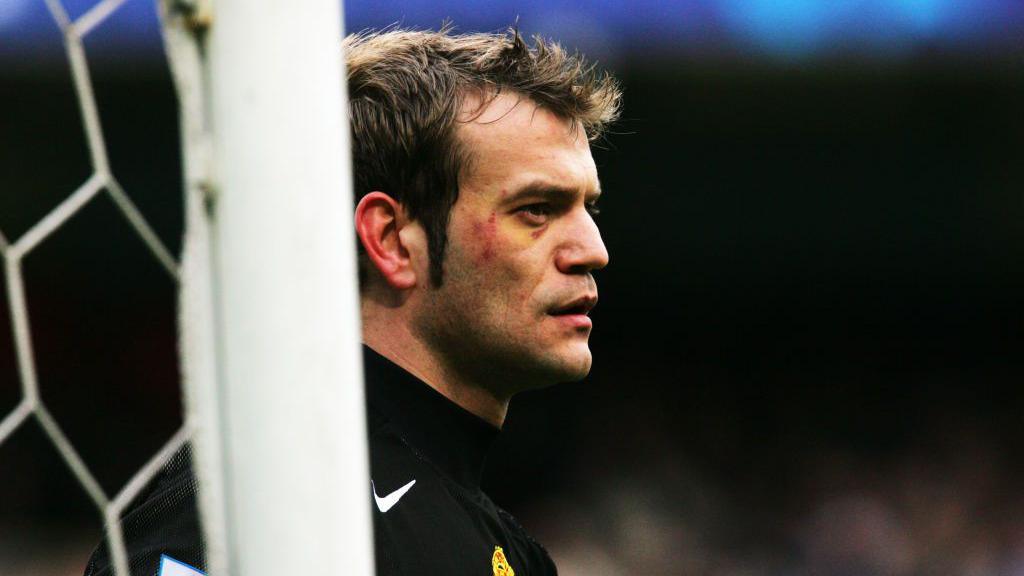'We are not robots' - Carroll

- Published
David De Gea, Edwin Van der Sar and Peter Schmeichel are widely acknowledged as United's modern-day great goalkeepers.
Yet there were others in between who helped the club win Premier League titles.
Mark Bosnich and Raimond van der Gouw featured in 37 of the 38 games in the 1999-2000 championship-winning campaign. World Cup winner Fabian Barthez was in goal for 30 matches of the 2000-01 title triumph. He did the same in 2002-03, when Roy Carroll played 10 times.
The Northern Irishman, who is currently working as an academy coach in Saudi Arabia, has first-hand experience of what it takes to be a goalkeeper at United.
"It's not easy playing for Manchester United at the moment, but it was hard back then because everyone was expecting the new Peter Schmeichel." Carroll said.
"Even then, if you made a mistake, it was big news. You had to be mentally strong and that is still the case.
"But we are not robots; we are all human beings. It is not so much what you do on the pitch as what you do off it."
Carroll knows the impact one moment as a United player can have.
He won a league title for the club and came on as a substitute in the 2004 FA Cup final victory over Millwall. He made 72 United appearances in total as part of a career than spanned nearly 500 senior games for 11 clubs across five countries.
Yet mention his name and the chances are the Pedro Mendes shot he dropped over the goalline and scooped to safety before the assistant referee had noticed is the moment that springs to mind.
"I made a big mistake against Spurs and that is what people talk about," he said.
"I take it. I laugh about it. At the time, I wasn't laughing because I was upset, but as you get older you get more relaxed."
Carroll is wary of pushing the mental toughness message too far because he knows repeating the message and adopting it are very different.
He talks openly about the depression - injury-related rather than down to mistakes - he suffered during his career, which is why he talks about off-field support, not just for United goalkeepers.
"Nobody taught me how to control the mental side," he said. "All I was bought to do was be a goalkeeper - train every day, play every weekend.
"I played in all the English leagues and, no matter if you are at the bottom or the top, you have to be mentally strong.
"You can be the best keeper in the world but, once you lose the mental side of it, it can break you, like it did with me for quite a while.
"That's why I try to help the young goalkeepers because the pressure now is a lot more intense."